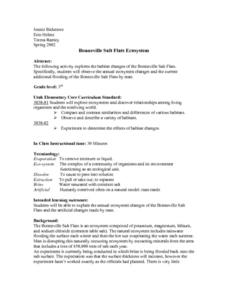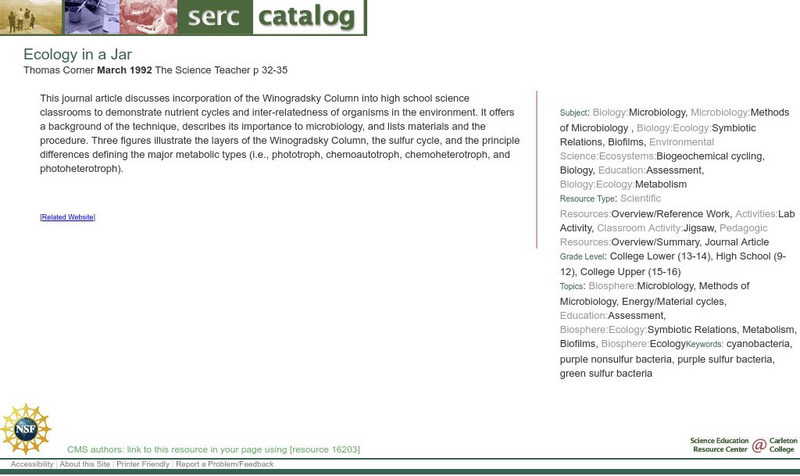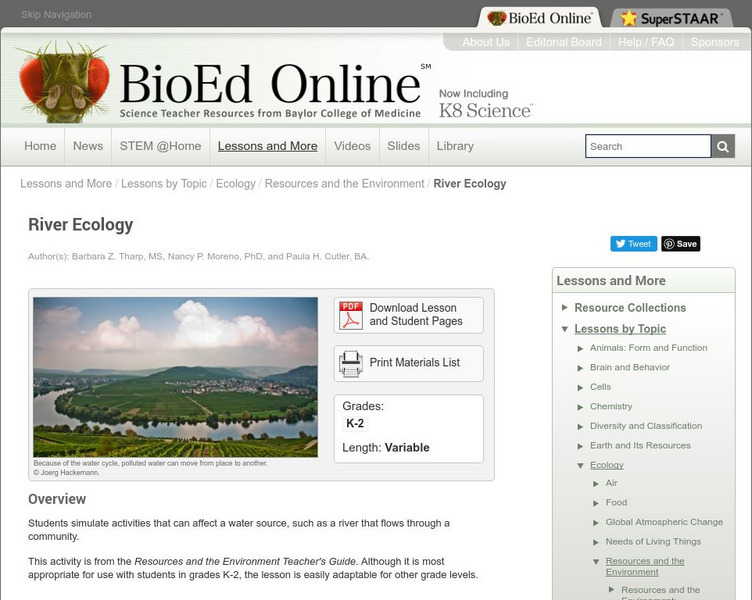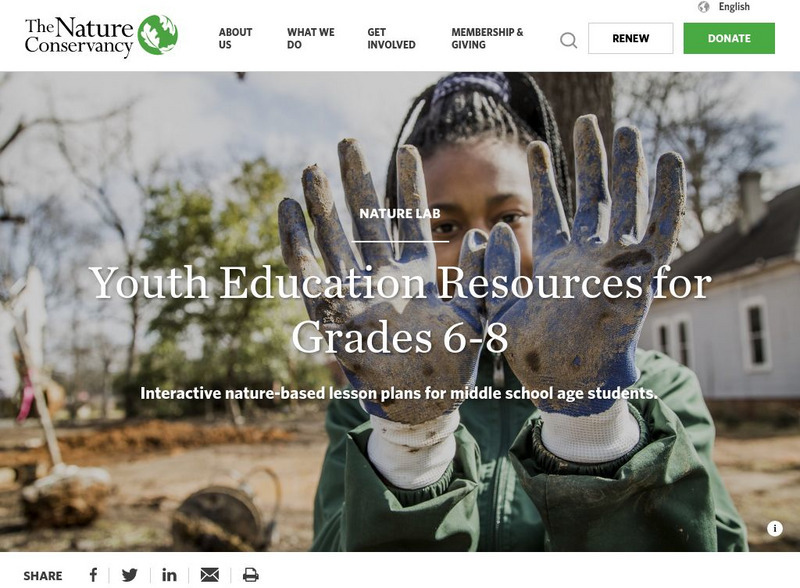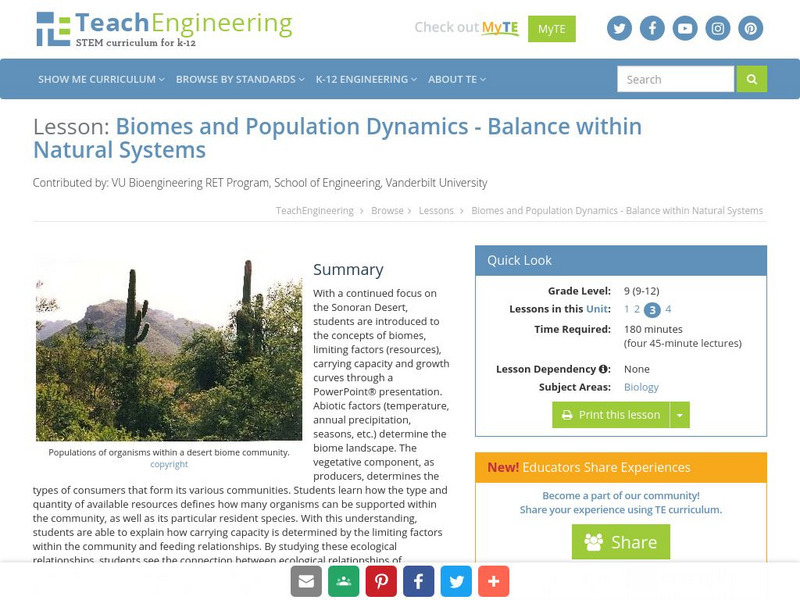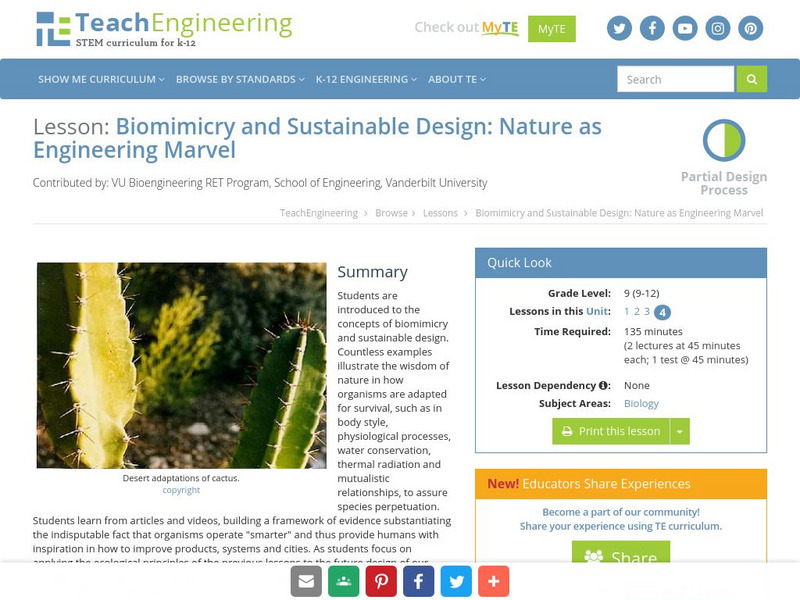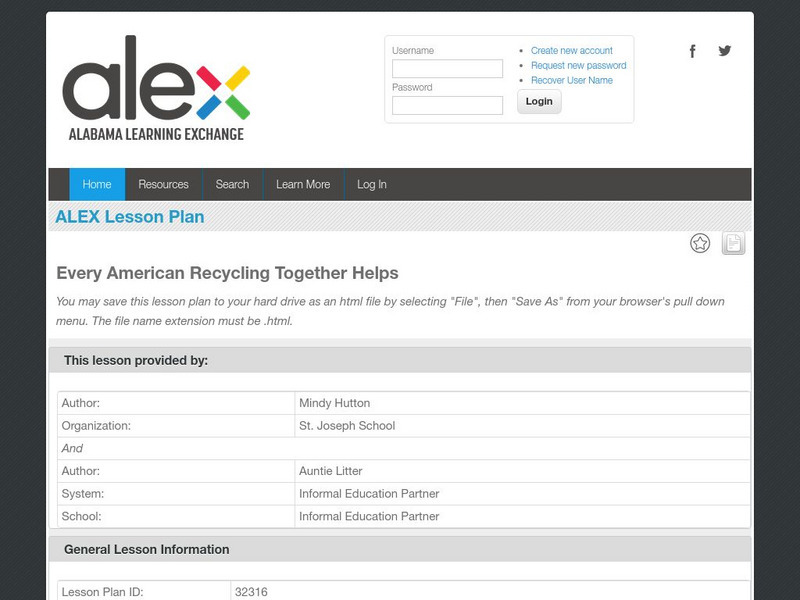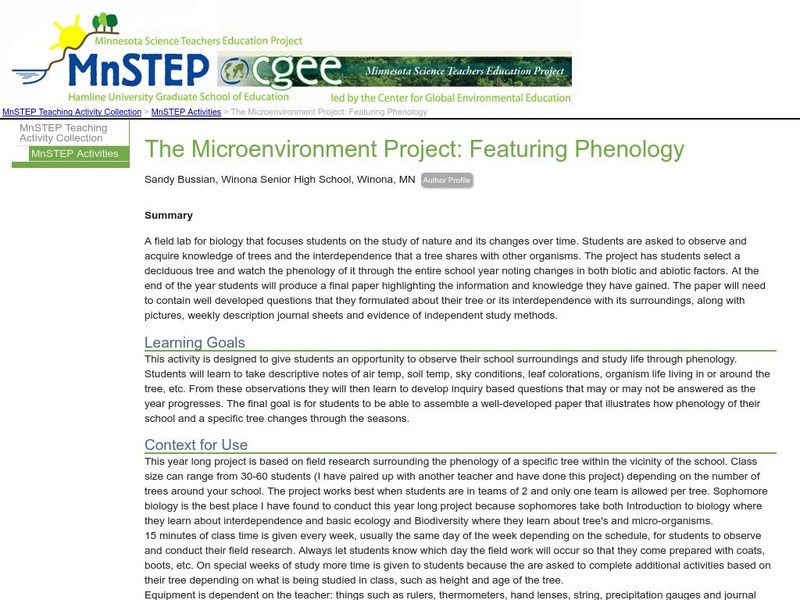Curated OER
Adapted to Fire
Fourth graders explore forest species' adaptations to fire by participating in a scavenger hunt and mapping a burned forest. Students create maps and explore how indigenous species adapted to living with fire.
Curated OER
The Appaloosa - Horse of the Nez Perce
Fourth graders investigate the use of Appaloosa horses by the Nez Perce Native Americans during the War of 1877. They examine the geography of the area and determine why the Appaloosa horse was suited to this use after looking at...
Curated OER
Bonneville Salt Flats Ecosystem
Learners discuss the annual ecosystem changes of the Bonneville Salt
Flats and the artificial changes made by man.They observe the annual ecosystem changes and the current additional flooding of the Bonneville Salt Flats by man.
Curated OER
Photosynthesis and Respiration
Eighth graders differentiate photosynthesis and respiration. In this biology lesson plan, 8th graders draw a diagram explaining these two processes. They answer a quiz after the lesson plan.
Other
My Science Box: Ecosystem Organization
In this lesson, students will learn about the different levels in the hierarchy of ecology and explain the relationships: organism, population, community, ecosystem, biome, and biosphere. They will also discover why different regions...
Science Education Resource Center at Carleton College
Serc: Ecology in a Jar
This journal article discusses incorporation of the Winogradsky Column into high school science classrooms to demonstrate nutrient cycles and inter-relatedness of organisms in the environment.
BioEd Online
Bio Ed Online: River Ecology
In this lesson plan students are required to simulate activities that can affect a water source, such a river as it flows from one place to another within a community.
TeachEngineering
Teach Engineering: What Will Biodegrade?
Students investigate what types of materials biodegrade in the soil, and learn what happens to their trash after they throw it away. The concepts of landfills and compost piles will be explained, and the students will have an opportunity...
Center for Innovation in Engineering and Science Education, Stevens Institute of Technology
Ciese Collaborative Projects: Bucket Buddies: Environmental Study
Bucket Buddies is an opportunity for students to participate in a world-wide environmental study. By identifying organisms in pond water, participating classes can compare their findings, and look for relationships in data. In addition...
Nature Conservancy
The Nature Conservancy: The Importance of Biological Interactions
Organisms have a variety of relationships. In this activity, students learn to categorize relationships according to their impact on organisms and the terminology for these biological interactions.
TeachEngineering
Teach Engineering: Biomes and Population Dynamics
This lesson begins with a PowerPoint slideshow that covers important ecological concepts about biomes, limiting factors, carrying capacity, and population growth. Students will look at the population dynamics involved with the diversity...
TeachEngineering
Teach Engineering: Food Chains and Food Webs
This lesson, supported by the provided power point lecture (LESSON 1 and 2 Ecology Lecture Supplement ), introduces students to the concepts of food chains and food webs. Through its use, students learn the difference between producers...
TeachEngineering
Teach Engineering: Nature Is an Engineering Marvel
This instructional activity introduces students to the concepts of biomicry and sustainable design. Students will learn to illustrate the wisdom of nature by demonstratiing how organisms adapt to their environment.
Discovery Education
Discovery Education: Lesson Plans Library K 5
This resource presents a lesson plan library which holds hundreds of lesson plans organized by grade level and subject area. Often rooted with an Internet research piece, each lesson plan contains specific objectives, procedures,...
PBS
Pbs Teachers: Scientific American: Alien Invasion: Unwanted Travel Partners
Perform an experiment to observe inadvertent transfer of organisms when new fish are transplanted into tropical aquariums. Apply this knowledge to explain how alien species can rapidly destroy the established ecological balance in an...
Alabama Learning Exchange
Alex: Every American Recycling Together Helps
Lesson where students learn about recycling by collecting trash from the schoolyard and watching a podcast about recycling. Additional activities are provided corresponding to different subject areas, such as reading, math, social...
US Geological Survey
Lake Pontchartrain Basin Foundation: Ecosystems in Delicate Balance
Learning activities to investigate how organisms interact in a functioning ecosystem. Students will explore the role organisms play in food chains and preserving biodiversity in ecosystems. Lake Pontchartrain Basin ecosystem is featured...
Science Education Resource Center at Carleton College
Serc: The Microenvironment Project: Featuring Phenology
A field lab for biology that focuses students on the study of nature and its changes over time. Students are asked to observe and acquire knowledge of trees and the interdependence that a tree shares with other organisms.
ArtsNow
Arts Now Learning: Using Tableau and Role Drama to Examine the Ecosystem [Pdf]
In this lesson, 4th graders use tableaux to dramatize their roles in the food chain of an ecosystem. Next, they write in role arguing why they are important to the ecosystem. This is followed by a debate in the format of a Character...
National Institute of Educational Technologies and Teacher Training (Spain)
Ministerio De Educacion: Los Seres Vivos Y El Medio Ambiente
What is ecology? What is a biome? You will find the answers to these questions in this unit and also learn about the organization of the Biosphere, major Biomes of the earth and the adaptations of living things to limiting factors. It...
BioEd Online
Bio Ed Online: Can Nutrients in Water Cause Harm?
Many different kinds of organisms live in water. Excess nutrients can cause over-abundant growth of some organisms living in water and non-point source pollution is a major threat to water supplies in the United States. In this lesson...
Other
Adopt a Pond Wetland Curriculum Resource
The Adopt-A-Pond Program was created by the Toronto Zoo for teachers looking for a guide to wetland issues and resources.
TeachEngineering
Teach Engineering: How Clean Is That Water?
This lesson plan helps middle schoolers understand the factors that affect water quality and the conditions that allow for different animals and plants to survive. Students will look at the effects of water quality on various...




